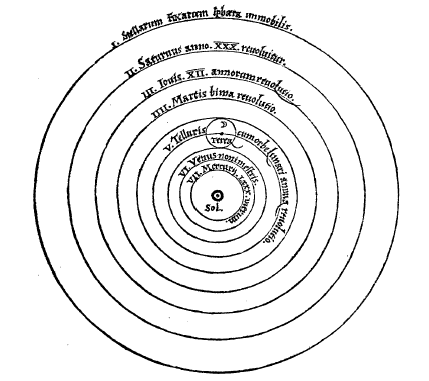The battle between traditional and well-established concepts against new and modern ideas is as old as the human being. The reticence to changes is also inherent to any society.
The following story gives a good example about this eternal contest . . .
Galileo Galilei was accused of witchcraft and heresy and he had to defend his ‘heretical’ theory about the heliocentric planet movement model (the model where the Earth turns around the Sun) face to the traditional geocentric model (the model where the Earth is in the center of the Universe). Galileo didn’t want to irritate the Church, and then he decided to develop his arguments as follows:
… “Your geocentric model explaining the Universe is not false; however it is quite more complicated than mine. Your model works, it allows to represent the planets’ trajectory; nevertheless I’m sure that the scientific community could take a huge advantage of my model since it is much more simple”.
-
Deferent and epicycle
-
The planets are assumed to move in a small circle, called an epicycle, which in turn moves along a larger circle called a deferent.
-
- Copernican system

-
This is the heliocentric simplified system described by Copernicus in "De evolutionibus"
This simplified example shows us how traditional and dogmatic theories can slow the new ideas.
Most of the people working on software development can affirm that traditional models such as
Waterfall and V model are not applied on real systems. However, this is still a standard on most industry processes.
It is true that many project have successfully applied these methods, but they could have reduced their duration and cost by using Agile methods.
David Garduno
A good explanation about Agile methods can be found in Wikipedia
A little explanation about the V model
However, I prefer the french explanation







